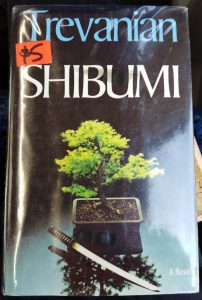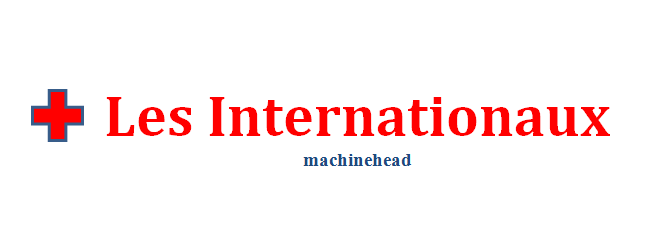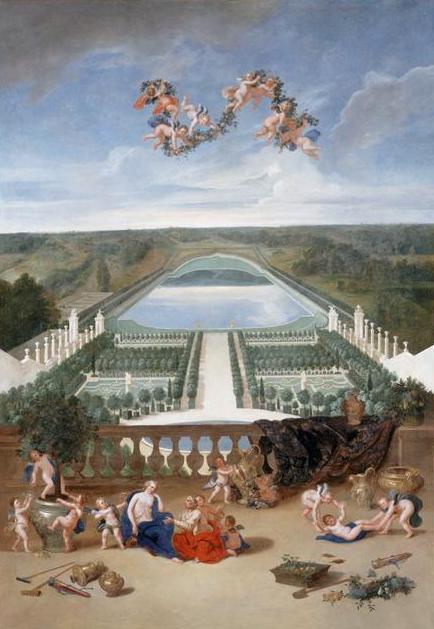Short story
It started to drizzle, greasing the road as she crossed into the Hastings Valley near the Burrawan Rest Area. She was looking for somewhere quiet, for space to make some hard decisions. She wasn’t sure this was the right place. Like half the people she grew up with, Dana moved away after high school. Some returned. Not Dana. She could reel back a few hundred kilometres of Pacific Highway easy enough, but not decades of emotional separation. Flashbacks of sparkling days filled with school friends and netball, teen surf life, first loves and purity, only served to contrast her adolescence from the odyssey she’d been on ever since.
She glanced at the rear-vision, flicked her auburn-dyed hair, and looked away from the crow’s feet framing her tired brown eyes. The Burrawan trickled behind her as tallowwood, blackbutt, and flooded gum forest gave way to dilating patches of cleared land approaching Port Macquarie. Her visits were so infrequent that a decade after its construction, the broad circular overpass where the Pacific Highway crosses the Oxley near the Billabong Koala Park, still seemed improbable.
Koalas, around here, come right up to your house. From the koala’s perspective you’re on common ground. Humans are incidental. Through summer the sound of koalas mating is nightmarish. They wake you at all hours fornicating like demons outside the window. A koala will saunter across the road, sometimes purposefully and other times languidly, and hold-up a line of Christmas holiday traffic along Kennedy or Pacific Drive. To Dana it was a badge of honour growing up where this was the dominant native mammal.
She’d packed the tent, portable gas cooker, a full esky and a borrowed surfboard. Being the Easter long weekend any hope of a campsite near the beach had passed. The parks were full. She considered driving through to Point Plomer, in her teens a camping playground away from parents. Probably still was. No, that would be taking the nostalgia trip too far. There were a couple of old friends she could call on. It wasn’t like she was without offers. She normally stayed with her auntie Lorraine, but it was a last minute decision and she couldn’t just land on people. A two-person tent offered more space to think than any three or five bedroom brick dwelling anyway.
‘Jordan’s Boating and Holiday Park’ popped up at the edge of the map on an online search. Jordan’s Boatshed? She’d pictured herself waking to the music of waves crashing, paddling out under a rising sun with sleep in her eyes. Jordan’s was up-river on the Hastings’s salty reaches, away from the town’s action and away from the beach, yet Dana thought she couldn’t have picked a better spot. She could barely remember how to get there, just which direction to head, so she allowed herself to be guided by GPS, only to arrive with the realisation that she knew the way all along. She rolled into Jordan’s in pale afternoon light, darkness hastened by a brewing sky. The drizzle was thickening as she slid open the glass door of the boatshed and hopped in.
“G’day, I called about a camp site.”
The man behind the counter looked familiar. So did the woman on a picnic chair at the back of the shed with a frazzle-furred pooch by her side. Locals glimpsed or dealt with decades ago.
“Yes, I’ve got vacancies.”
He’d said it over the phone too, but he sounded less convincing now. Was it her appearance? He was salt of the earth Port Macquarie, a slender middle-aged man, soft spoken but steady, with the sapience of a fisherman and the deference of the small businessperson, a man in tune with the river, the tides, meteorology, and the tourist trade.
“You sure you want to set up a tent now?”
They both looked out through the glass sliding door at rain beginning to make rivulets across the bonnet of her car. For a moment Dana contemplated a call to her aunt.
“I’m pretty quick putting up my tent so I’ll be okay. I’ll dry off.”
He looked down at his register, unconvinced. “Two nights?”
“Two nights for now, maybe three, depending.
“Ok, site 12 up the top. That’ll be seventy dollars. Here’s your amenities key…”
At the back of the boatshed the woman with the curly-haired lap-dog spoke up. “You’re not making her put a tent up in this weather are you, Dale?”
He looked up from the register at Dana, with the slightest hint of a frown, taking a second to size her up before turning to the woman.
“She asked if we’ve got a vacancy and we’ve got a vacancy. I’m not going to tell her we don’t.”
“It’s gunna be pourin’ out there soon. She’ll get drenched. Put her in a cabin.”
A hint of distant thunder punctuated the lady’s instruction.
“It’s Easter,” he replied. The subtext: premium prices and high demand.
“Well, have you filled the cabins?”
A late call could come from a desperate tourist, ill-prepared, double-booked, or unhappy at their first choice of accommodation. Dale could ask top dollar for his cabins. Night though, would soon swallow Good Friday.
Dale looked down at his register and puffed his cheeks as he weighed up the options.
“The park cabins are $130…”
“Don’t charge her full price,” more thunder.
With rain now pattering steadily on the tin roof of the boatshed, Dana accepted the hopelessness of her tent. “Full price is okay, really. I’ll take the cabin tonight, and when the weather clears I’ll put up my tent tomorrow.”
“Tell you what,” said Dale. “I’ve got an old cabin up near the back road. It’s further from the amenities and the telly’s playing up. I’ll split you the difference.”
“Deal. Thank you.”
“Alright, that’ll be eighty dollars for tonight. This key’s for the cabin, this one’s for the amenities block.”
Settling in was a matter of dumping her bags, a stand-up inspection, and sitting on the bed. She slipped on a windcheater and took a walk, posting wet photos on Instagram of the cabin, the fishing boats, and the river rolling past greyly under a marbled sky. The tension of Sydney, and the apprehension she’d felt on the drive up, began to wash away.
Breakfast was chicken sausage and salad wraps with hommus and mango chutney, not in the cabin, but by the riverside on her butane burner, with the sunrise blasting holes through the clouds, and Hawaiian coffee from the thermos she’d filled back in Bondi.
She dusted off the surfboard and gave it a once over before sticking it back in the car with her faded beach towel and old wetsuit, then idled out onto the road. The water looked murky at Town Beach, and offshore a sharp line of muddy river outflow clashed with blue sea. The river did this after heavy rain. Beyond North Shore, Point Plomer disappeared in the hazy distance at the end of that long unbroken curve of white sand. She steered off Pacific Drive and descended toward the ocean on Tuppenny Road, which wound through Banksia scrub and opened out onto Flynn’s Beach, where she found Easter holidaymakers ignoring a ‘beach closed’ sign. She wandered up to the surf shop for surfboard wax.
“Dana? Dana Baker?”
A face can fade from memory or become unrecognisable with age. A voice on the other hand is indelible.
“Mick?”
Mick Huckleton was Dana’s crush when she was fifteen and her first lover by the time she was sixteen. Back then a lithe, suntanned, fun-loving surfer with long blonde hair and habitually bare torso, Huckie had been a dream-boat. He was older, out of high school, and owned a Mitsubishi station-wagon. By seventeen, Dana worked out she was just another notch on his leg-rope.
Huckie had lived by the seasons as a young man. The nor’easter in summer favoured the surf at Lighthouse and northern Shelley Beach, and the sou’wester in winter favoured Town Beach, Flynn’s, and Southern Shelley’s. Tourist girls were available in the warmer months, and there was always a local girl to snuggle up to in winter. The ‘tourist chicks’ had surely dried up for Huckie in recent years, Dana surmised. Which category did she fall into now, being autumn and all?
Middle-aged Huckie had not fattened like most, but the torso had atrophied. He had the wrinkles and dappled complexion of someone who’d spent too much time in the sun, or on the booze and smokes. Hair had sprouted on his chest and shoulders, and like his thinning head of hair, was wiry and grey. He looked fifteen years older than her, though he was only four.
“Wow. You haven’t changed a bit,” he said, looking her up and down.
“Wow!” Why the fuck did I come in here, she thought. “Thanks, you’re looking pretty fit yourself.”
“How long you here for?”
“Just for the weekend. Dropped in for some wax.”
“Still surfing, hey?”
“Trying to get back into it.”
“Wicked,” he said, a forty-seven year old still grasping for hip jargon.
“I can’t believe I bumped into you here.”
“I own this surf shop,” he said with a sideways grin.
“Wow,” she said, unconvincingly.
“Oh come on, Dana. You knew that.”
“No, I didn’t. Well done,” she said, looking around in appraisal.
“Come on, Dayno. Everybody knows this is Huckie’s shop. You came in to see me, no need to pretend,” he said, with the knowing smile of a self-certified yogi.
She looked at him blankly. You haven’t changed a bit have you, you prick? You think I came in here chasing you like your imaginary sixteen-year-old ‘Dan-o’. I’m supposed to know this is your shop because you’re some sort of local legend now?
“No, I actually didn’t know this was your shop,” she reconfirmed with a grimacy smile.
“Hey, we should catch up,” he said, handing her a block of a coconut scented ‘Sex-Wax’ for her surfboard.
“I’d like that,” she lied.
“Meet you at Lighthouse at five.”
“Okay.”
“How much is the wax?”
“Nah, my shout.”
She looked at the price on the shelf and jangled some change from her coin-purse, sliding it across the counter to him.
Andy and Dana were besties for a while in high school. That’s the way they summarised it for people. There had been a couple of fleeting ‘occurrences’ near the end of school and soon after, but never an ‘event’. She’d long ago put it down to a lapse or two out of the sexual exuberance of youth. Andy had dated Dana’s sister, Charli. It was unclear if that made him off bounds for her or her for him. Whichever, that’s the way it still was twenty-five years later, and it was probably why they remained close friends.
Women came in and out of Andy’s life, and if Dana’s friendship caused suspicion, there’d been little shown by his exes. She wasn’t sure if that was a relief or an insult. There had been a couple of sad women who failed to snare Andy but tried to eliminate her as a threat anyway. She’d propagated an exaggerated status for him once or twice to ward off unwelcome suitors too, and she sensed he knew it. He was as safe as a gay friend, with the benefit of being straight. As the years went by and his relationships became steadier, Dana gravitated to the periphery. Maybe that’s just what happens when besties live in different places.
He’d moved since last time Dana visited, downmarket to a worn out renter in a back-block above the industrial area. Over a late morning coffee with Andy and Paula, Dana gleaned that the rainwater tank business was weak. “Plenty of work,” Andy told her. “Too many in the game, all undercutting you.”
“Ever think about moving back to Port?” Paula asked.
“Not anymore. It’d feel weird, like the town had moved on but I was back in the past. Sydney people always moved up here to get out of the rat race. Now I know what they meant. Every day I squeeze on that lurching bus to a job that’s killing my soul, and think, ‘this is no life’. If I ever moved though, I’d go somewhere completely new.”
“I never used to feel that way but I reckon I could do with a change,” said Paula, as she watched out the front window of their paint-deprived rental, across the weedy lawn to where her five-year-old son, Marlon, played bikes with a neighbour’s kid in timid sunshine.
“I’m never leaving Port,” said Andy resolutely. “I was born in that hospital over the hill, my son was born there. Why would I leave? It’s perfect.”
It was a glimpse of the parochialism Dana found tedious in her home town compatriots, the essence of someone like Mick, and a reminder why she could never love someone like Andy. Andy moved to Sydney after high school too, worked at AMP, and might have had a different life. At around thirty he’d decided to come back, and by crikey he was determined to stick with it. Andy’s self-righteousness about living the simple life masked a sense of regression, but he’d indeed made a righteous choice, Dana knew.
A week out of high school, Dana walked into the Port Macquarie News with some photos of migrating whales she’d captured from different headlands. Editor Bob Carlisle asked if she could put together a few hundred words to go with them. She went home, dug out her old biology text book, and began her cadetship. Carlisle had been her mentor ever since.
When she moved to Sydney she wrote for The Herald on and off, worked as a barmaid, and did a diploma in TV production at a dubious private college, before getting a job as a researcher for the ABC’s Four Corners. Soon Dana was filling temporary vacancies for reporters all over Australia. She was in the right place at the right time when they urgently needed staff in the Middle East Bureau.
She pulled into the Breakwall carpark after dusk. Carlisle was at the back of his old Landcruiser going over his fishing rigs.
“Bring a rod up with you?”
No formalities. Dana knew instinctively, from the sandy puddles along the edge of the bitumen, to the clouded moonlight. The damp in the air was a fever. These were rare mulloway conditions.
“Nuh.”
“’ere, you can use this one.”
He handed her his spare rig. It was the nine foot Jarvis Walker solid tip rod and Alvey side-cast reel she‘d bought second-hand for his 50th birthday, over a decade and-a-half ago.
The tide was on the turn and they got their first hit within half an hour of casting. The rain-washed murk in the river was invisible to fishing tourists in the dark, but Dana and Carlisle could sense it. Carlisle landed the first two while Dana got re-acquainted with the Alvey. Then a twitch, she let it run, gave a precise tug, and she had one. It was a monster. Carlisle watched calmly from twenty metres up the breakwall, rolling a smoke one-handed, as excited holiday fishermen gave Dana advice on how to land it.
She heaved and reeled at the heavy old rod for eight minutes, her eyes chasing the line where it disappeared into the dim moonlight’s milky reflection on the river. A self-appointed fishing instructor with an inadequate landing net stumbled backwards on the rocks, as Dana swung the fish over his head and up flapping onto the breakwall, twenty-five kilos of angry mulloway putting a show on for the tourists.
When they’d bagged three each the run stopped. Carlisle moved closer to chat.
“I read what happened in Fallujah. Your Italian mate got killed.”
The river passed by majestically as she ruminated. “Well, he wasn’t my mate, but he died. The Irish aid worker didn’t deserve what she got, though.”
A few nibbles made the tips of their rods wiggle but not bend.
“You go over it again and again night and day,” Carlisle said, watching the river. “What if I’d done this, if only I’d said that, they might be alive. It never goes away. You can learn to live with it, no matter how much fault you find in yourself. Do your bit to fill the world with life. It’s the best honour you can pay to the dead.”
“You never told me about Vietnam.”
Another few million litres of Hastings River passed into the Pacific.
“I’m retiring.”
“Congratulations.”
“They’re having trouble finding someone.”
Dana cocked an eyebrow at him. “All those journos let go by the metropolitans? Should be beating ’em off with a cricket bat for an editor’s job up the coast.”
“They got applicants, none suitable. They’re not paying enough, lousy pricks.”
Dana steered the conversation away.
“They’ve offered me an anchor role. 7:30.”
It saved Carlisle from telling her his job was hers if she wanted, he just had to say the word to the Board.
“Congratulations to you too.”
She puffed an inward sigh, looked at him wearily. “Thanks.”
Dana turned into Blair Street, North Bondi, just after 10:00 pm Sunday. She’d come back ahead of Easter traffic. Rollo the Russian Blue welcomed her home enthusiastically, perhaps relieved. The new flatmate tasked with feeding him had left the place smelling of rancid chicken.
Easter Monday, Rollo helped Dana with her spiel for the executive producers: the gravitas and professionalism she’d bring, the energy she’d throw into her new role, how she’d wanted an opportunity like this for so long…
She’d been passed over so many times she’d given up on it ages ago. Now she didn’t know.
Tuesday morning she bustled off the crowded bus and sidestepped through pedestrian traffic to the Ultimo headquarters. She coffeed up in the ground floor cafe before heading upstairs to her desk to prepare for a 10:00 am with her new bosses.
Working her way up the emails she landed on one that came in Sunday while she was driving back down the coast. No text, just a photo of a fish fillet too big for its barbecue plate, in a bright green back yard framed by greyed timber fence palings, with banana trees sprouting from a patch of red earth, and a koala sitting in a gumtree nearby.
Dana walked into her meeting twinkling.

 an author making fun of tropes, if they do it well. Cervantes and Don Quixote comes to mind.
an author making fun of tropes, if they do it well. Cervantes and Don Quixote comes to mind.
 as their taxi inched along. “We can take a shortcut through Marie Antoinette’s Estate.”
as their taxi inched along. “We can take a shortcut through Marie Antoinette’s Estate.”